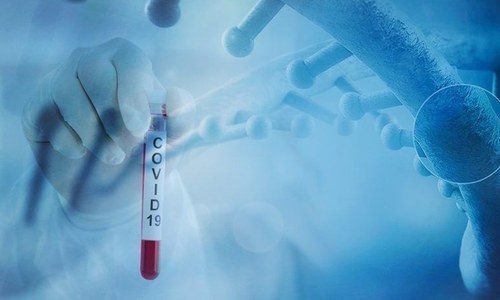While some potential vaccines have emerged in the global race to find a way to stop the spread of Covid-19, many scientists and researchers believe antibody-based therapies hold great promise for treating people already infected with the disease.
How do antibody therapies work?
These therapies use antibodies generated by infected humans or animals to fight off the disease in patients. They date back to the late 19th century, when researchers used a serum derived from the blood of infected animals to treat diphtheria.
For Covid-19 treatment, researchers are studying the use of convalescent plasma and other treatments made with blood from recently recovered patients.
More recently, scientists have developed treatments called monoclonal antibodies — antibodies that can be isolated and manufactured in large quantities to treat diseases like Ebola or cancer.
Companies like Eli Lilly and Regeneron Pharmaceuticals in the United States are trying to use this approach to develop their treatments.
Unlike convalescent plasma, manufacturers do not need a steady supply of antibody-rich blood to produce monoclonal antibodies, so this approach could be easier to scale up.
How are they different from vaccines?
In general, the goal of a vaccine is to generate an immune response that can prevent someone from getting ill with a disease, whereas antibody-derived products are generally designed to treat the disease.
And while some drugmakers have suggested antibody treatments can be used prophylactically — Regeneron’s Chief Scientific Officer George Yancopoulos has said their treatment could be a bridge to a vaccine.
“You might go into nursing homes or the military and use it because antibodies have a pretty long half life,” said Dr Betty Diamond, director of molecular medicine at the Feinstein Institutes for Medical Research.
“You might decide that you are going to use this as a prevention in this very high risk group, but you wouldn’t do that for the whole country.”
The amount of protein in antibody drugs makes the treatment more expensive than vaccines in general, Feng Hui, chief operating officer at Shanghai Junshi Biosciences said.
Designing antibody drugs to treat or protect high risk people, including those with weak immune systems, could require hundreds, or even over a thousand times more protein than found in a vaccine shot, according to Junshi.
Who is developing antibody therapies for Covid-19?
Eli Lilly is collaborating with Junshi and Canadian biotech firm AbCellera Biologics to develop different antibody treatments, both of which have started early stage testing in humans.
Regeneron plans to start clinical studies later this month to test its antibody cocktail treatment, which was derived from antibodies from genetically-modified mice.
It aims to have hundreds of thousands of preventative doses available “by the end of the summer or the fall”.
The CoVIg-19 Plasma Alliance, which includes Japan’s Takeda Pharmaceuticals and CSL Behring, is working on hyperimmune globulin therapy derived from convalescent plasma, which could offer a standardised dose of antibodies and doesn’t need to be limited to patients with matching blood types.
The Antibody Therapy Against Coronavirus project, funded by the European Commission and led by Sweden’s Karolinska research institute, is looking at a similar approach as well as monoclonal antibodies.
Under the project, monoclonal antibodies extracted from convalescent plasma are now being tested on human volunteers in Germany and on animals in Switzerland.
Britain’s GlaxoSmithKline is working with Vir Biotechnology Inc to develop potential antibody treatments which select the best antibodies out of the plasma.
AbbVie has also announced a collaboration to develop antibody therapies.
Singapore’s state research body A*Star is working with Japan’s Chugai Pharmabody Research on an antibody for clinical use.















































